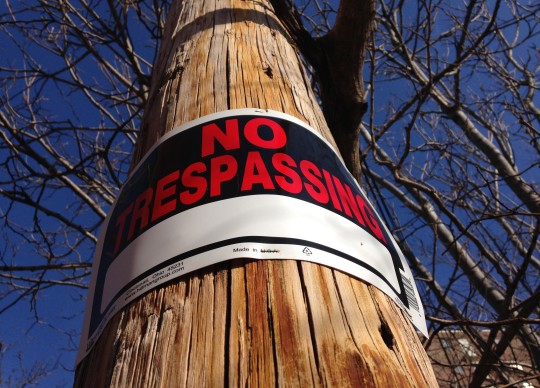
Notes on a sketchy-looking takings bill
Two years ago, The Nerve posted a powerful story by Allan Yarid, a resident of Seneca whose downtown property had effectively been confiscated by city authorities against his will. City officials, he explained in an update to the story, “are imposing massive fines and requiring extensive and unnecessary repairs – repairs that city ordinances do not require – apparently in an effort to persuade people to relinquish their properties.”
Yarid spent time in jail and felt he’d bee railroaded by the whole process – and we can see why.
We thought of his story recently when combing through legislation introduced in the General Assembly earlier this year. This bill, S.1000, would allow the town of Camden to annex commercial property by ordinance if the county finds that “the commercial property, including its improvements, constitutes a danger to the safety and health of the community by reason of lack of ventilation, light, and sanitary facilities, dilapidation, deleterious land use, or any combination of these factors.”
It’s bad enough that South Carolina’s eminent domain law – the law allowing government to seize land under certain circumstances – is extremely weak. The law seems to outlaw abusive takings, but doesn’t define the terms under which those takings can occur. In essence, state or local governments can take your land for almost any purpose, as long as government officials claim the reason is “public use” or “blight.”
Laws like S.1000 would make this protection even weaker by giving local governments the right to “annex” (that is, take) property if that property were deemed unsanitary, dilapidated, or just bad for some reason (“deleterious”). Such a proposal raises deeply troubling questions: Determined by whom? City officials? Is there any check in place to stop abuse? What do those terms mean, exactly? A plain-English reading of the bill and existing law would suggest that if Camden’s town council so chooses, it could seize a plot of land and develop it as – let’s say – a horse racing track. All officials would have to do is invoke those terms (dilapidation, deleterious land use, etc.). Sure, city officials probably don’t have that sort of ill intention in mind at all, but the bill would allow them or future town officials to do precisely that – and that’s the point.
One other matter. The bill never passed – it was introduced in the House, received a favorable report by the Kershaw County delegation, but never received floor debate despite being rescheduled several times. An identical bill was introduced in the Senate, referred to Judiciary, but similarly never received floor debate. In both instances, the only members who would have voted on the Camden-specific legislation would have been members of the Kershaw delegation. That’s not written in law anywhere; it’s just a tradition lawmakers have among themselves. So a mere seven lawmakers – three in the Senate, four in the House – can pass a law out of the General Assembly and override the governor’s veto if it should come to that.
The legality of that tradition is questionable. By our reckoning, the state constitution allows the General Assembly to pass local legislation for purposes of roads (see amendment article III) or for purposes of fixing salaries of county officials (see article 3, section 34, subsection IX). But otherwise, article 3, section 34 would seem to prohibit the legislature from passing bills that only apply to one locality.
Leaving aside the finer points of constitutional analysis, though, this much seems safe to say: If you live in South Carolina, you’d better keep an eye on your land.
